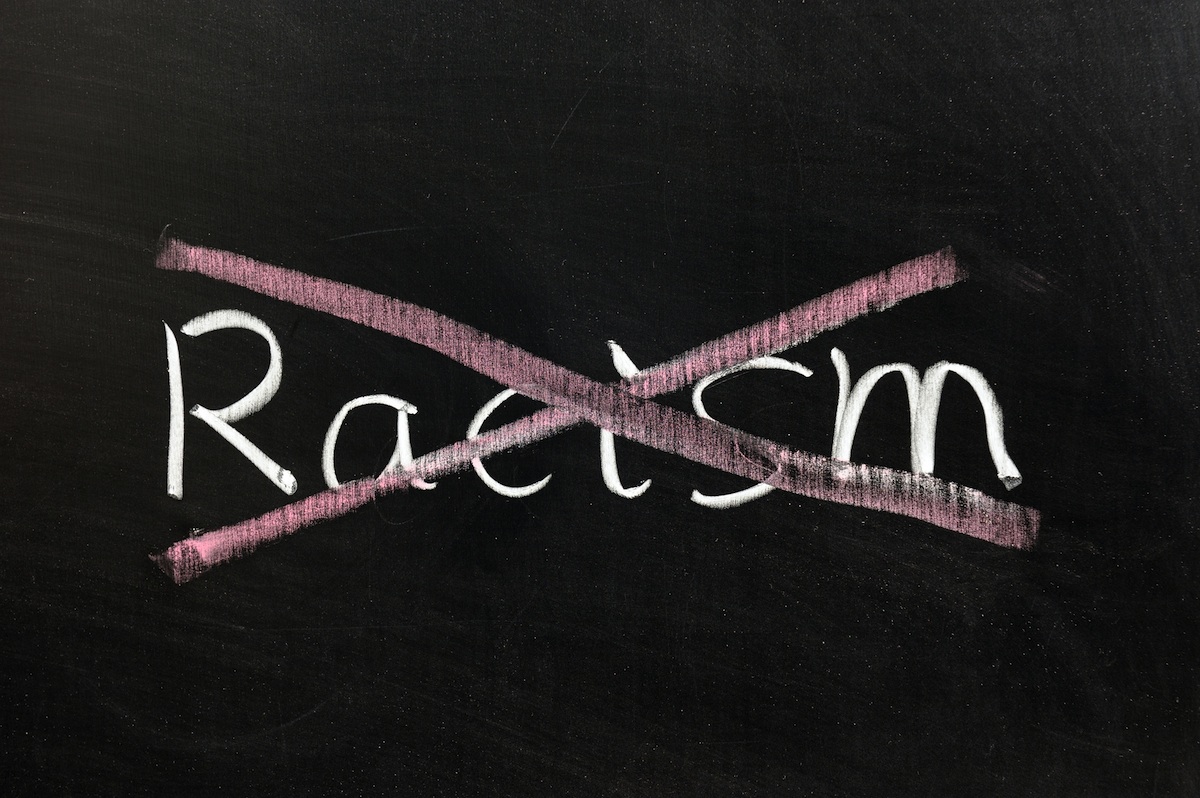The Local newsletter is your free, daily guide to life in Colorado. For locals, by locals.
In the late-1980s, I attended Grinnell College in central Iowa. The school was (and remains) wildly liberal, sometimes inexcusably so: During the 1988 presidential primaries, Grinnell students aggressively booed Republican candidate Jack Kemp before he could utter a word and heckled him throughout his campaign speech.*
As much of a rigid philosophical cocoon as the place could be, it also taught me some of the most important lessons I’d ever learn. One of those arrived courtesy of a class I took my junior year called “Black Sociology.” Its professor was Kesho Scott, a woman who was dynamic, hilarious, outrageous—and unabashedly intimidating to this lily-white kid from north suburban Chicago.

Kesho also was the most memorable and inspirational instructor I’ve ever had, in any subject. From the very moment she strode into the class, her primary goal was to challenge our assumptions, and chief among these challenges was to illustrate how racism was alive and well throughout our society, even on our proudly left-wing campus.
How could this be? We were young, smart, and devoted to equality. We were open-minded. We had black friends. (The term “African-American” was just then coming into the vernacular.) Sure, the big, bad world outside campus had plenty of racial issues, but not us.
Right?
Wrong. What Kesho helped us realize was how racism has many, maybe infinite, degrees. It’s reflected much more broadly and subtly than obvious slurs or acts of violence. It’s reflected in the assumptions we make: For example, a number of kids in “Black Sosh” told stories about being the only African-American student in a high school class and having the teacher turn to them whenever a topic in class involved “the black experience,” as if every one of them had lived an identical life. Assumptions such as these aren’t always overt, and they may not be maliciously intended, but they still are racially biased reductivism.
It’s this reductivism, we learned, that makes these individuals feel less than: Less than whole, less than special, less than anyone else who society views as a unique person, unlike any other, with their own personal story to tell.
It’s this reductivism that allows the narrow-minded to strategically lump certain “types” into one dismissible pile, unworthy of support or attention (unless it’s negative).
It’s this reductivism that allows a wealthy man—do I even need to mention that Los Angeles Clippers’ owner Donald Sterling is white?—to buy a sports franchise in a league whose vast majority of players are minorities for $13 million in 1981, run it with unprecedented ineptitude for 30 years, and still be able to walk away with around $700 million if he sold it tomorrow, all while harboring alleged and actual racist views against the people upon whose backs he amassed this windfall.
If there’s a clearer modern analogy to the 19th-century plantation owner, I’ve yet to see it. This hasn’t stopped other white men who are rarely right about anything from rushing to Sterling’s defense.
It will be fascinating to watch how this unfolds. On Tuesday, the NBA banned Sterling for life, fined him $2.5 million, and announced its intention to force him to sell the Clippers franchise. Commissioner Adam Silver appears to have nearly unanimous support within the league for this stunning decision, including from Denver Nuggets’ president Josh Kroenke. As gleefully as this news was received in many circles, the move could also generate a chilling effect on our First Amendment—still, in my opinion, the most important one of them all despite all the recent efforts to cripple it. Questions also remain about the audio tape that started this whole mess, and about the future of our right to privacy in this breakneck information age.
As many have said, there’s no place in sports—or in our society—for this type of thinking. Most people seem to realize this; the instantaneous and widespread outrage over Sterling’s remarks was actually quite heartening. Even so, I have zero faith in our ability to ever eradicate bigotry completely, if only because there will always be too much fear and willful ignorance in our world. But that will never mean we should stop trying to learn the lessons whenever they arise, and apply them judiciously.
* An earlier version of this story said Kemp was booed off the stage before he could speak. The author regrets the error.
—Image courtesy of Shutterstock








